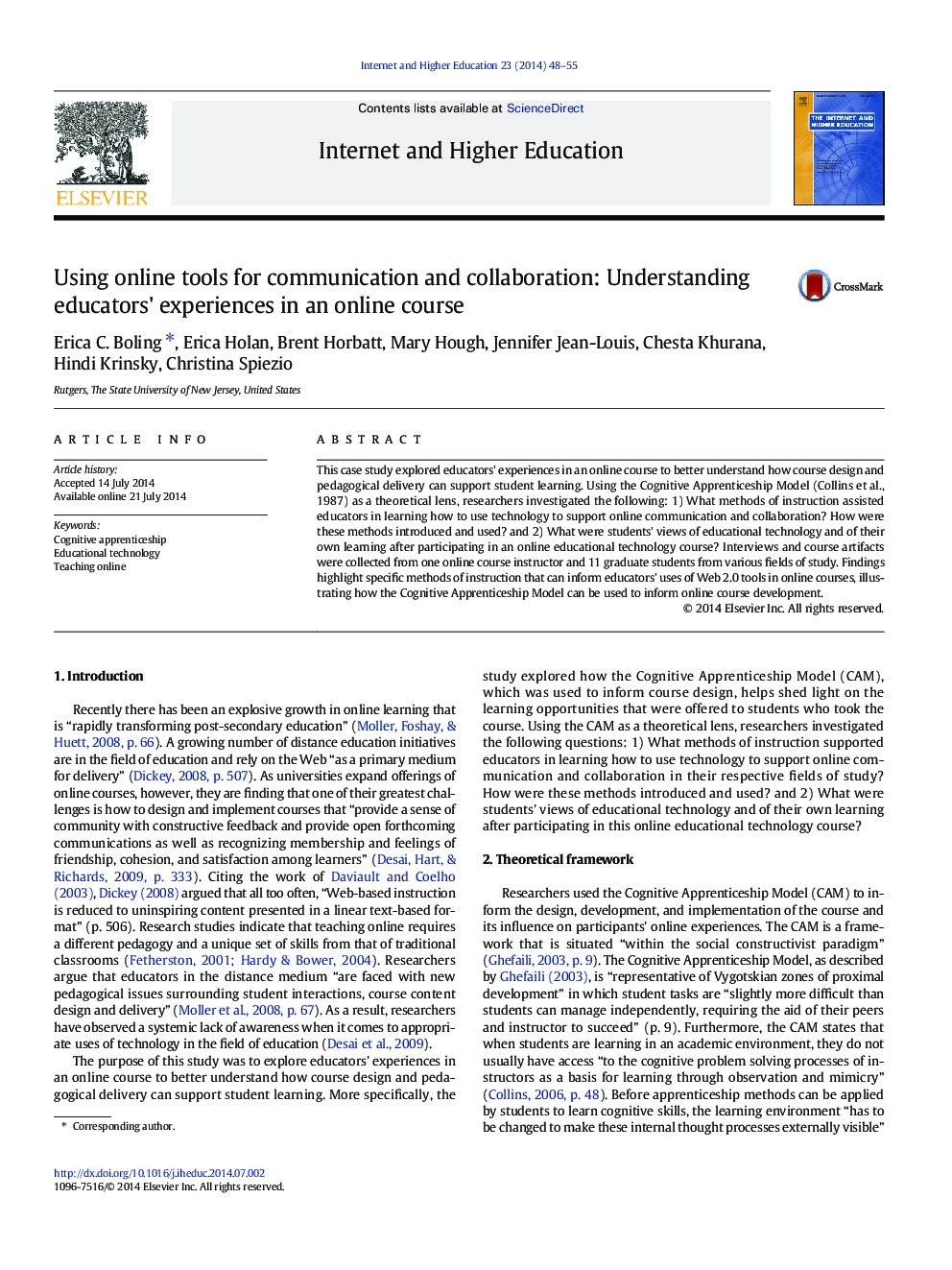| کد مقاله | کد نشریه | سال انتشار | مقاله انگلیسی | نسخه تمام متن |
|---|---|---|---|---|
| 357747 | 619947 | 2014 | 8 صفحه PDF | دانلود رایگان |
• Cognitive Apprenticeship Model (CAM) can inform online course development.
• Web 2.0 tools supported online communication and collaboration.
• Students were positively impacted by taking the online course.
• Teachers' ability to use technology for teaching and learning increased.
This case study explored educators' experiences in an online course to better understand how course design and pedagogical delivery can support student learning. Using the Cognitive Apprenticeship Model (Collins et al., 1987) as a theoretical lens, researchers investigated the following: 1) What methods of instruction assisted educators in learning how to use technology to support online communication and collaboration? How were these methods introduced and used? and 2) What were students' views of educational technology and of their own learning after participating in an online educational technology course? Interviews and course artifacts were collected from one online course instructor and 11 graduate students from various fields of study. Findings highlight specific methods of instruction that can inform educators' uses of Web 2.0 tools in online courses, illustrating how the Cognitive Apprenticeship Model can be used to inform online course development.
Journal: The Internet and Higher Education - Volume 23, October 2014, Pages 48–55
